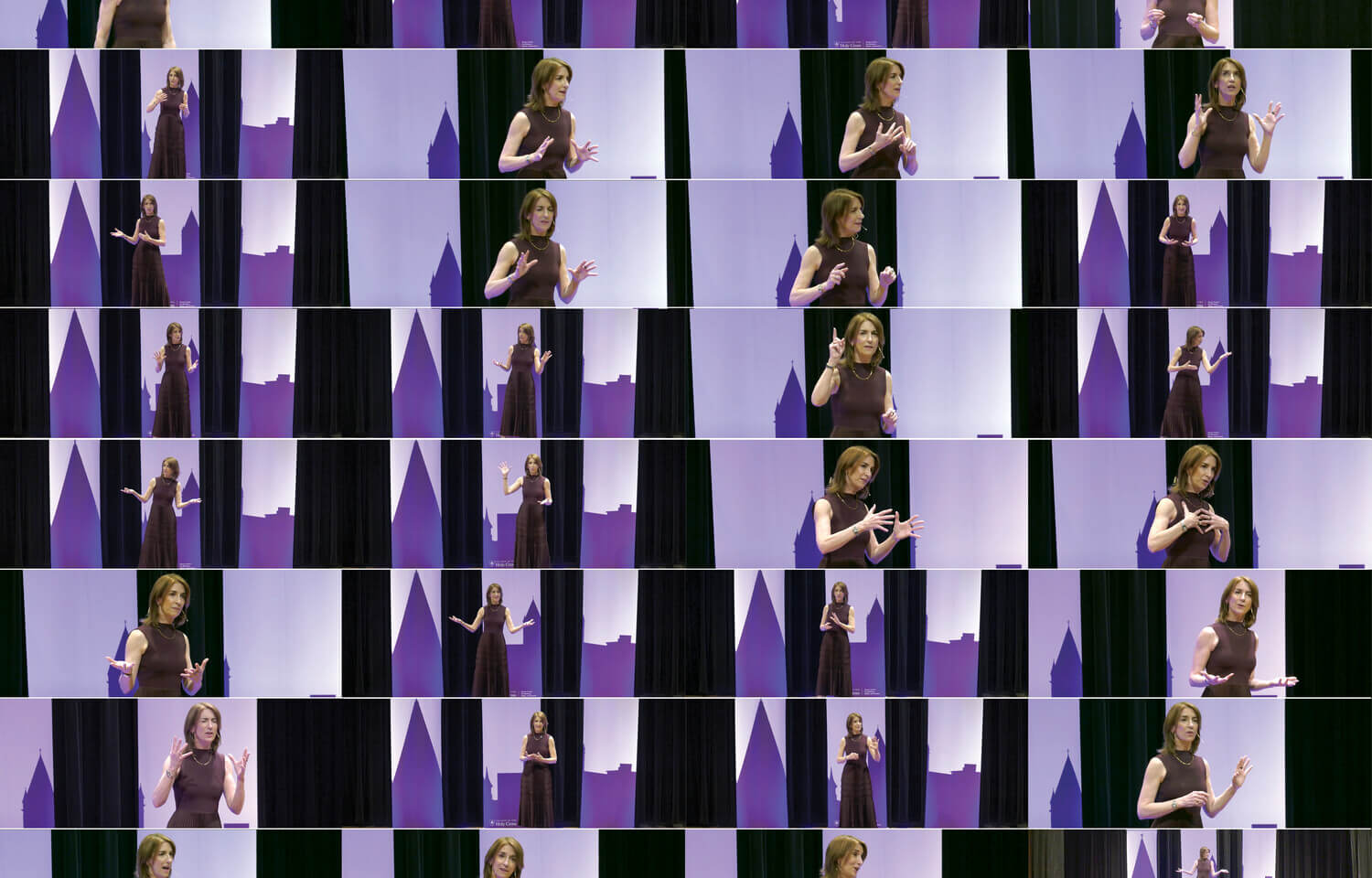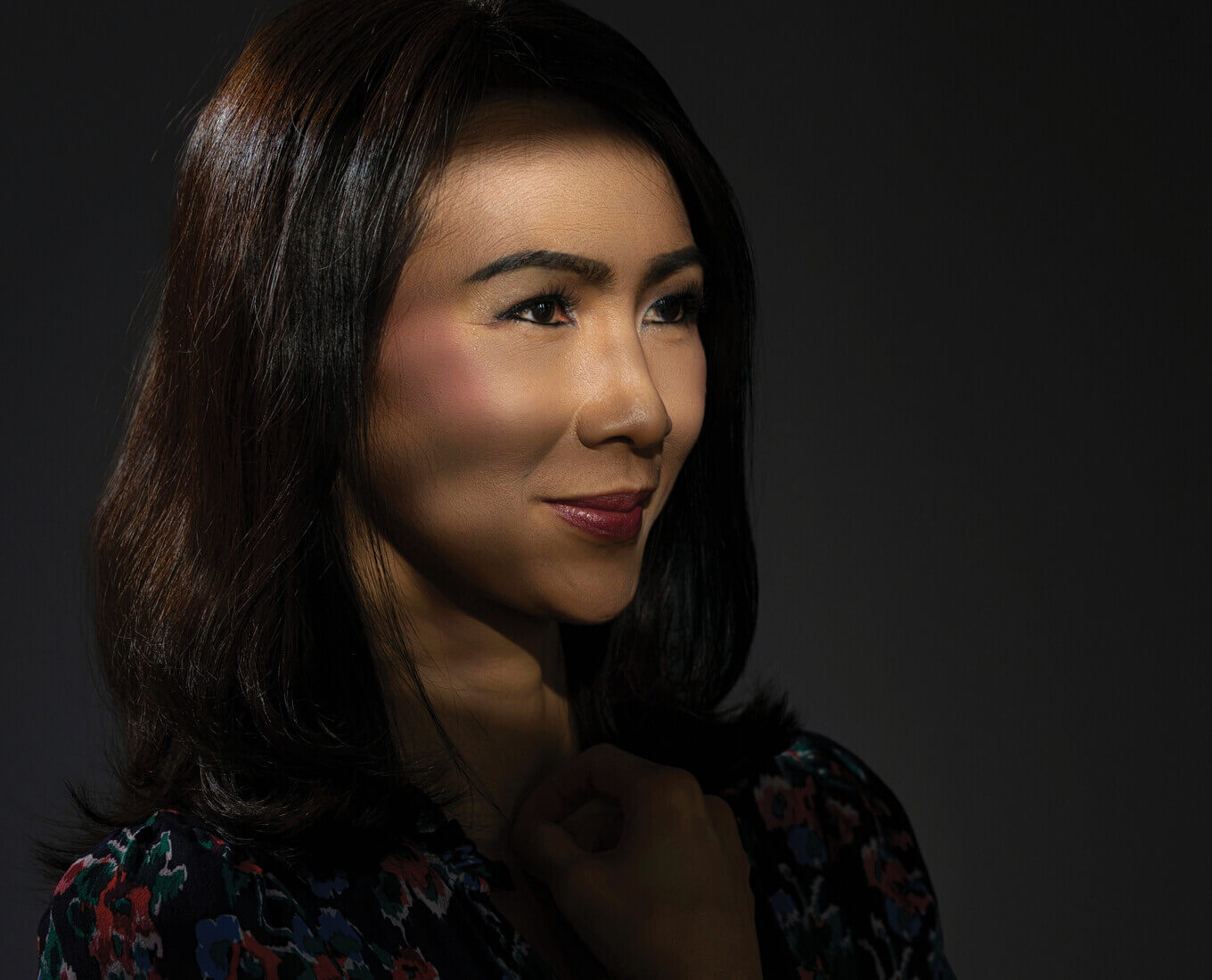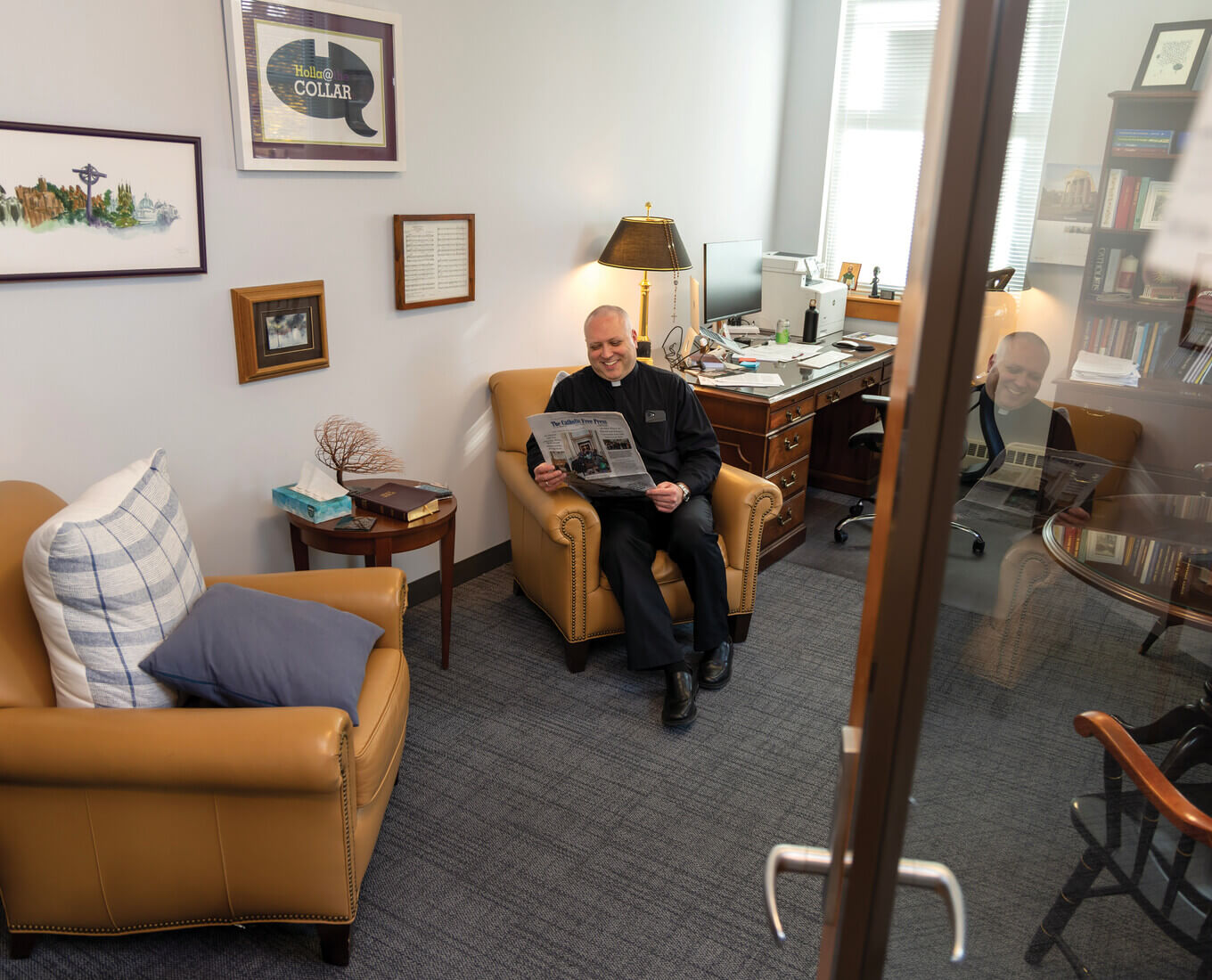I had my head down, my desk covered in spreadsheets, the calculator at my fingertips. I was doing everything I could think of to prepare for my annual meeting with our board of directors. How did I ever end up doing this? I was a freaking French major, a ballerina and the daughter of educators. How did I become the CEO of an ad agency trying to calculate an explanation for changes in overhead rates and margins? To say I was not in touch with living the Jesuit mission of being a woman for others at that moment would be an understatement.
Then I had the interruption that changed everything for me.
One of the junior members of our team came into my office. Her face was lit up. “Julie, do you have a minute? I know you’re busy preparing, but I just have to tell you something.” She proceeded to tell me about an idea she’d had for one of our food clients.
The idea was a promotional program that gave kids a way to plant a tree and do something positive for the environment. She knew how to fund it, where to source the trees, how to connect it to the brand’s business objectives, how to measure its success. She had figured it all out and she was beaming.
When I saw how lit up she was, I had a new idea about what this agency I was running might really be all about. Of course we had to deliver the numbers, make money, win some ad awards, attract clients. But the “really really” of it was that I was running a place where people could work and experience that thrill — the thrill of having an idea, the thrill of feeling the energy and goosebumps that seem to come from the inside out when we land on something new, or discover something we didn’t know we knew.
It was then that I realized, maybe, I’m not in the advertising business at all: Maybe I’m in the goosebumps business.
And once I started considering this perspective, so much shifted. Instead of getting bogged down, depleted and exhausted by spreadsheets, numbers and contracts, I was energized by the playful possibility of what might emerge from every member of our team. I realized that my job was not limited to delivering a profit and margin improvement, it was about creating an environment for other people to have their goosebumps moments from having a good idea.
When I saw how powerful this shift was for me, I started to ask this question of my clients: What business are you in …. really?
I was working with a colleague who owned a group of restaurants, and I asked him this question. The obvious answer was that he was in the restaurant business … or the “hospitality” business. What he realized was that the “really really” for him was that he was in the transportation business.
People came into his space and were transported – of course by the food and the wine, but also by the décor, the music, the lighting — and from that place he was able to inspire his staff, attract the best talent and, naturally, have the highest Open Table ratings.
There’s a great story I heard that supports the power that comes from answering the question: What business are you in … really?
There was a gentleman who had been asked about his work and the dialogue went like this:
“What do you do?”
“I help sick people feel better.” “Oh, so you work in a hospital?” “Yes.”
“Do you specialize in one particular treatment area?”
“I work mostly in the ICU.”
“You must have to pay such close attention to so many things.”
“Yes, I do.”
“Where did you go to school to get your training?
“I went to the local high school here in town.”
“Oh, I meant for med school.”
“I didn’t go to med school.”
“College?”
“Nope, never went.”
“Really? I don’t understand. How can you help sick people get better if you didn’t go to college?“
“Well, I am in charge of cleaning the ICU floor every night after the patients fall asleep, and I know that it helps them and their families to wake up to a clean, good-smelling, orderly room. And if they like what they see when they look around, they will feel better, even for a moment.”
The man was a custodian. But his “really really” was that he helped sick people feel better. Imagine how different it must have felt to go to work every day knowing that emptying garbage cans, cleaning out used bedpans, sweeping up all sorts of likely disgusting debris was helping people to heal.
Another client of mine was a big pharmaceutical company with a new medication for people with a disease that makes it hard for them to swallow food. It might seem that companies who make medicine would easily know what business they are in. They make sick people well. But that answer was not sufficient for this leader. She and her team were so bogged down by the challenges of clinical trials, FDA label restrictions and insurance coverage, that they were far from lit up about their work.
During a brand development workshop, we spent some time on the question: What business are you in ... really? And what they discovered is, sure, people would be able to swallow better with their treatment. But “really really” they would be able to do something they couldn’t do now – sit around the table, break bread with friends and family and create lasting memories. They were in the creating memories while breaking bread business. Much more inspirational.
Goosebumps. Transportation. Making sick people feel better. Creating lasting memories. None of these are the expected answers to the question, “What business are you in ... really?” But all of these answers have one thing in common: They shift the focus from what we do to whom we serve, to how others benefit from what we do.
So, I’ve come to love this question. It has the potential to elevate the mundane to something more inspired, more sacred — more of what we Crusaders might call a “calling.” This question also can remind us — like it reminded me – that we can be men and women for others in any job we do.
So, I ask you Crusaders, in the spirit of Jesuit reflection: “What business are you in ... really?”
Julie Halpin Anderson ’84 is president of Next Step Strategic Services and former CEO of WPP’s Geppetto Group. She helps brands and leaders tell their stories with authenticity, creativity and a sense of purpose. This reflection was part of the CrossTalk series, presented by the Carlyse and Arthur A. Ciocca '59 Center for Business, Ethics, and Society.


